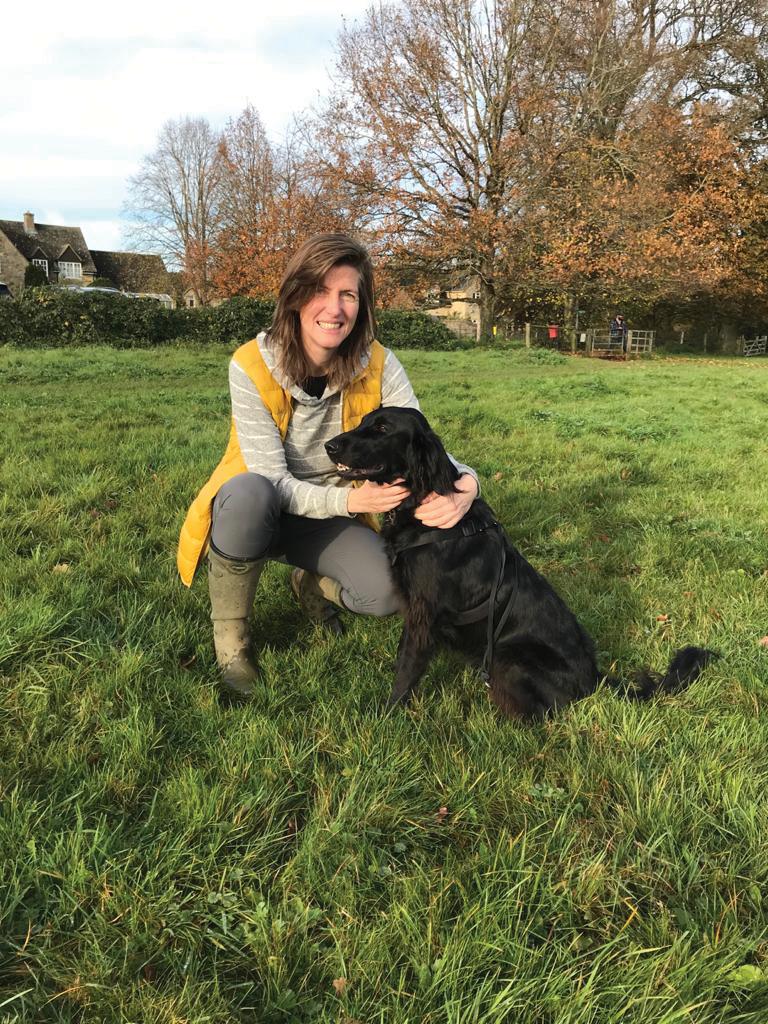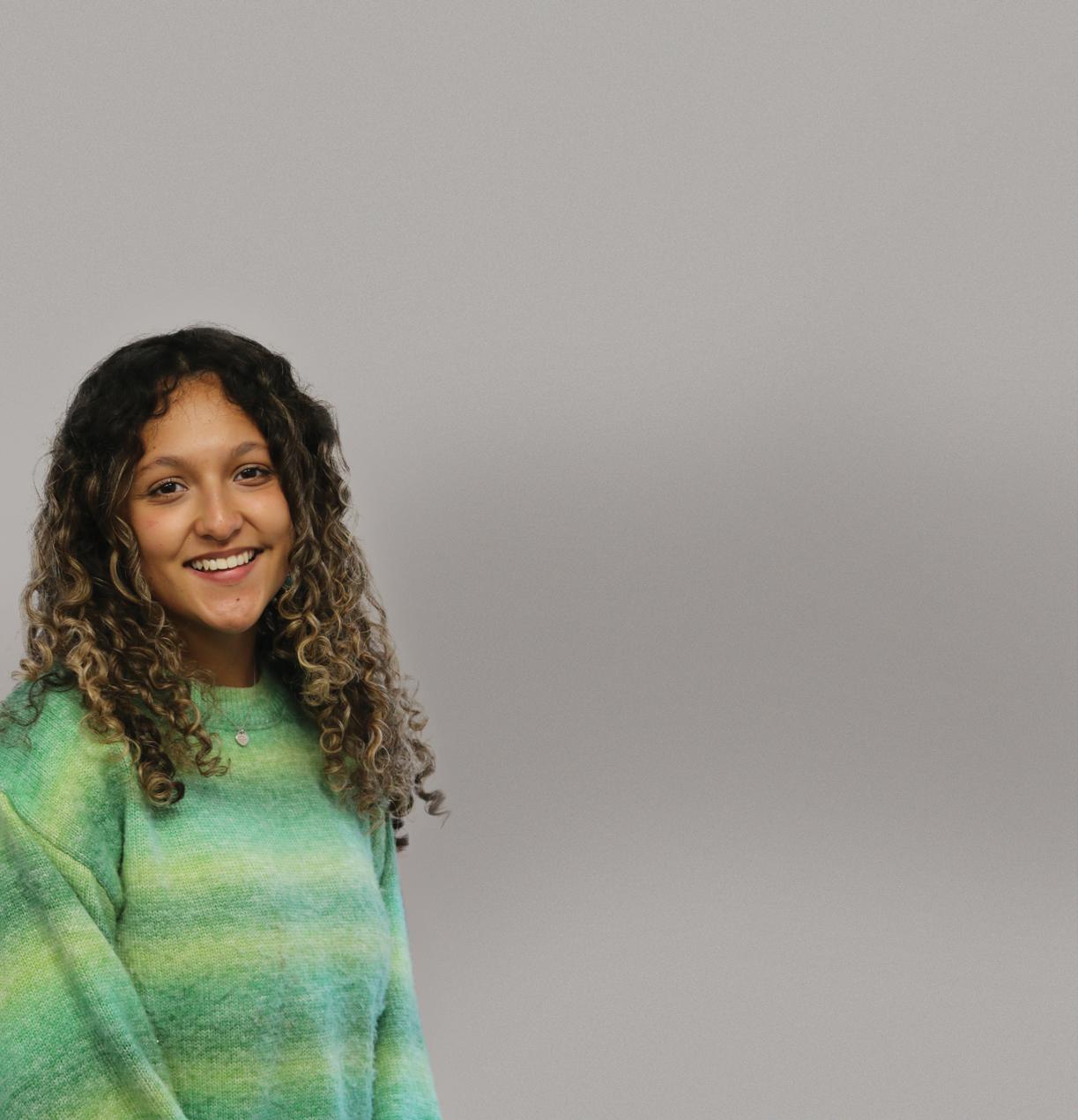
11 minute read
COMMUNITY RAISE US UP
Together We Can Change the World
Our team of L6 Creative Directors are part of the organising group putting together a two-week programme of events in school to mark International Women’s Day on Tuesday 8 March. We asked them to explain why it’s so important to support and empower each other and all women.
AMELIE
“Attending an all-girls school means that it is even more important to me that women support one another. From teachers and alumnae to older pupils, LEH is full of inspiring role models for us all to look up to. I love hearing about past students going into male dominated fields, with their fearlessness encouraging me to pursue my own passion for STEM subjects.
There is an atmosphere about my school though, that I truly feel sets us apart from others like it. It is an unspoken, but incredibly well understood feeling of community and support; support for one another despite differences and ongoing outside pressure for us to compete. I wholeheartedly believe that in every corner of our school, you are met with kindness, and championed by others to succeed in your own way. I am so proud to be a part of our LEH community, because when it comes to breaking the bias attached to girls’ schools and women in general, it does exactly that in every imaginable way.”
SELENA
“I have played a lot of team sports in my time at LEH and I have noticed that you can always feel the support from fellow players. We can see a prominent example of working together in the success of the England women’s rugby team, The Red Roses. There is of course the spirit and skill of the players themselves, but what helps to set them apart and to be able to excel over much of the competition is because of increases in funding, fan support and national engagement. This shows how collective support can play a vital role in progressing professional women’s sport. We are all required to participate in a small way to fully unlock the potential that’s already out there.”
SANNA
“LEH celebrates community and constantly evolves to create spaces for people to feel valued and included. I particularly feel that the creation of the new APoC (Allies of People of Colour) club has formed a space to strengthen members of the community by sharing and celebrating cultures.

At LEH our voice is heard and amplified both by the amazing legacy of alumnae and the staff. Whether it’s a motivational voice in a tricky maths lesson or conversations with peers which make me feel more comfortable and confident in my experiences as a woman of colour, the community at LEH is ready to uplift and celebrate us. I feel confident in my endeavours, both now and in the future, that I will always have this community in the friendships I have formed during my time at LEH.”
NILOMI
“The topic of women supporting women sparked memories from March 2021 when there was a particularly strong emphasis on social media, surrounding rape culture and sexual harassment. This was due to the tragic murder of Sarah Everard and the consequent creation of the “Everyone’s Invited” movement.
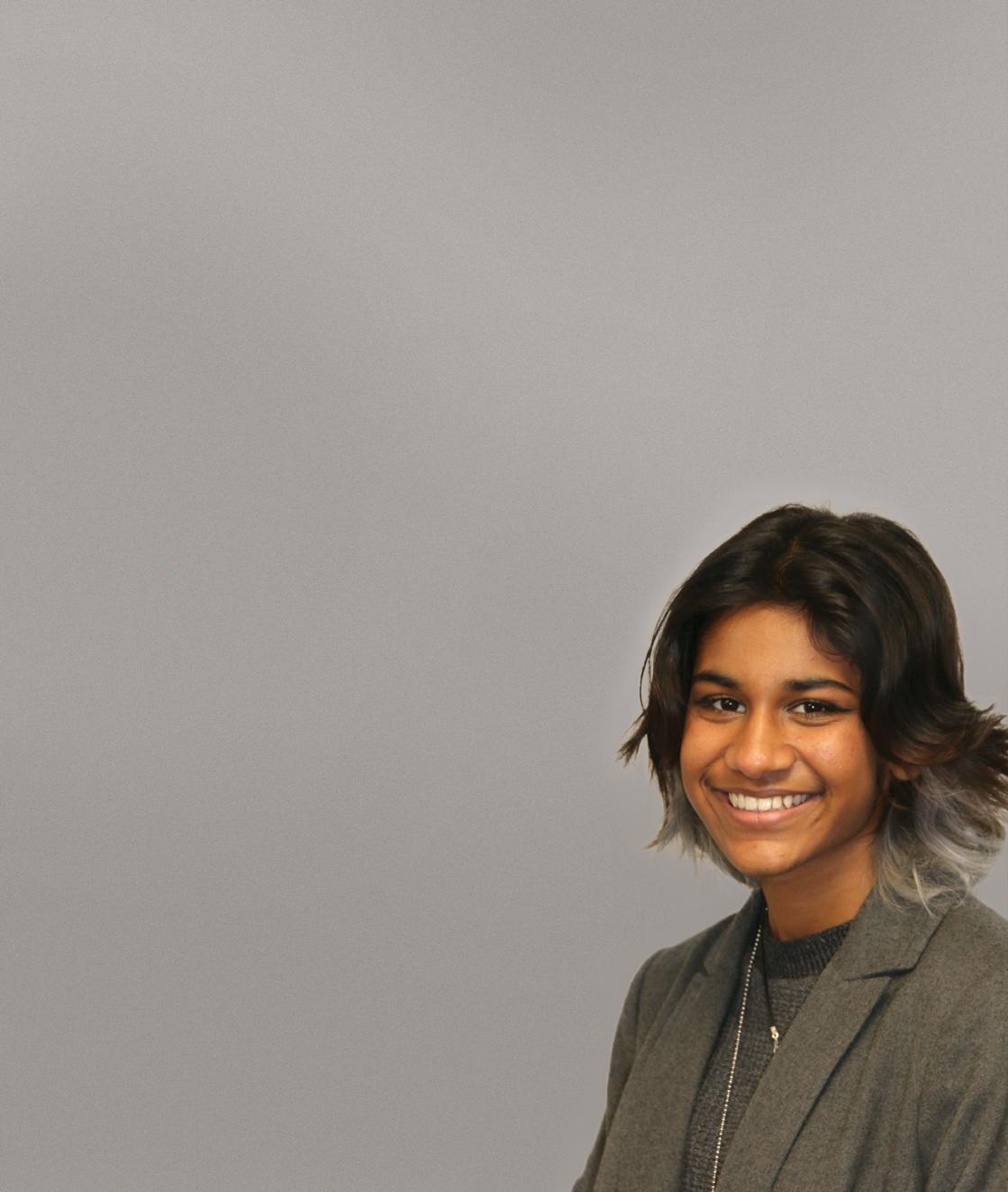
At LEH, my fellow peers and I took it upon ourselves to increase awareness about such issues within our smaller community. We collated experiences of pupils and became effective mouthpieces for not only pupils in our year, but far beyond that and it was one of the most empowering moments of my life.
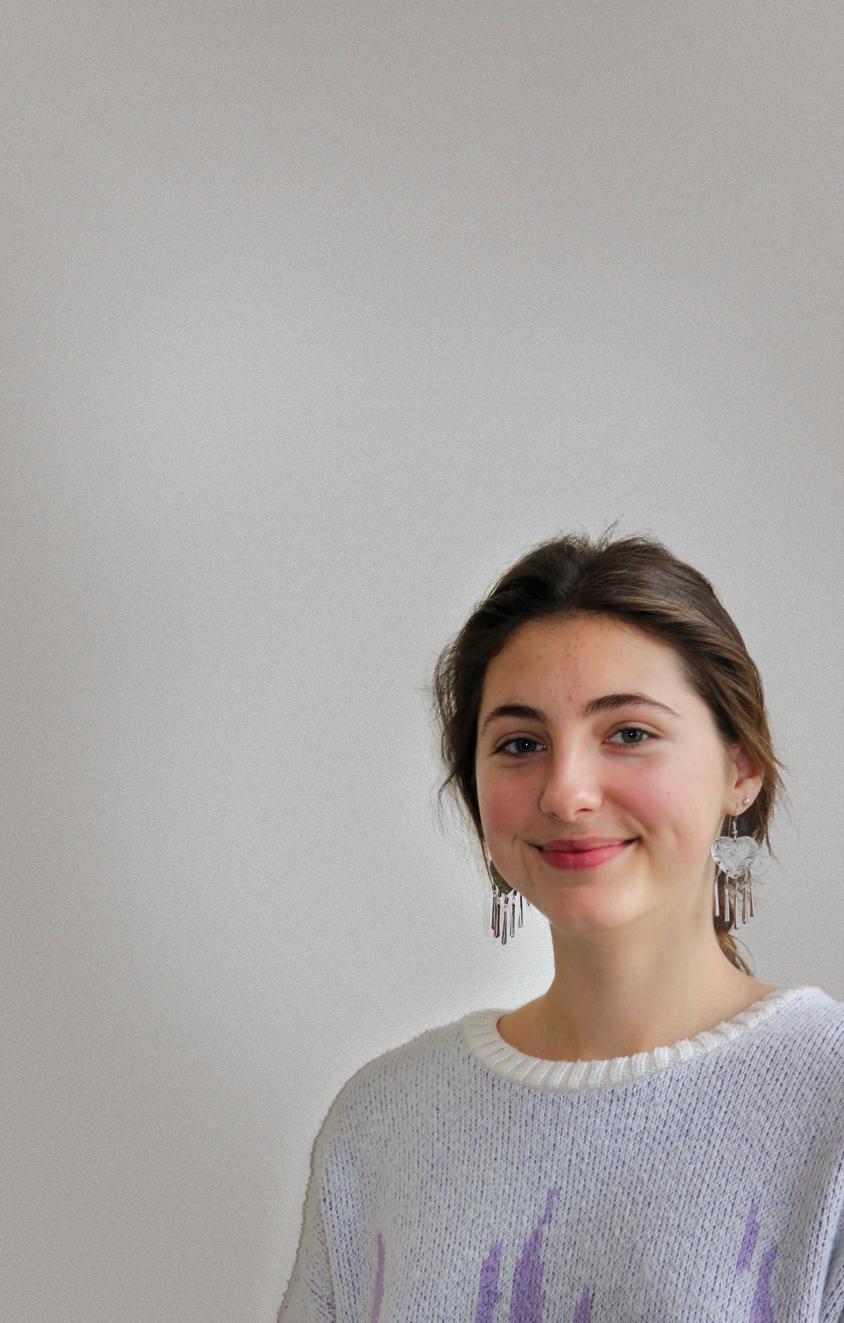
The supportive atmosphere of LEH was highlighted during this process when there was the creation of clubs such as feminist society and an Upper Sixth committee, as well positive changes to Hampton and our PSHE curriculums. This journey strengthened my belief that together, we can strive for better.” as
CHARLOTTE
“Showing support and love to each other in the society we live in today should always be a priority. Although women’s rights are constantly improving and we, living in the UK, are among the most privileged in the whole world, it is still so important to uplift each other and challenge female stereotypes.
Standing up for what we, as women, believe in and fostering an inclusive environment, increases each other’s potential as with support grows confidence and with confidence, I truly believe anything is achievable. We should work together to make the world a better place and try to accomplish everything that we set our minds to.”
WHO ARE THE CREATIVE DIRECTORS?
Every year six L6 students are selected to take on a role of responsibility working alongside the school’s Marketing and Development team. Their remit is to be the voice of students and help shape the way the school is represented both internally and externally.
They devise ideas for special events in school, have creative input into design projects around the school, such as murals and corridor displays, as well as making video reports about school news and devising campaigns to drive engagement on social media. The role is particularly of interest to students who are considering a career in journalism, marketing, graphic design, or communications.
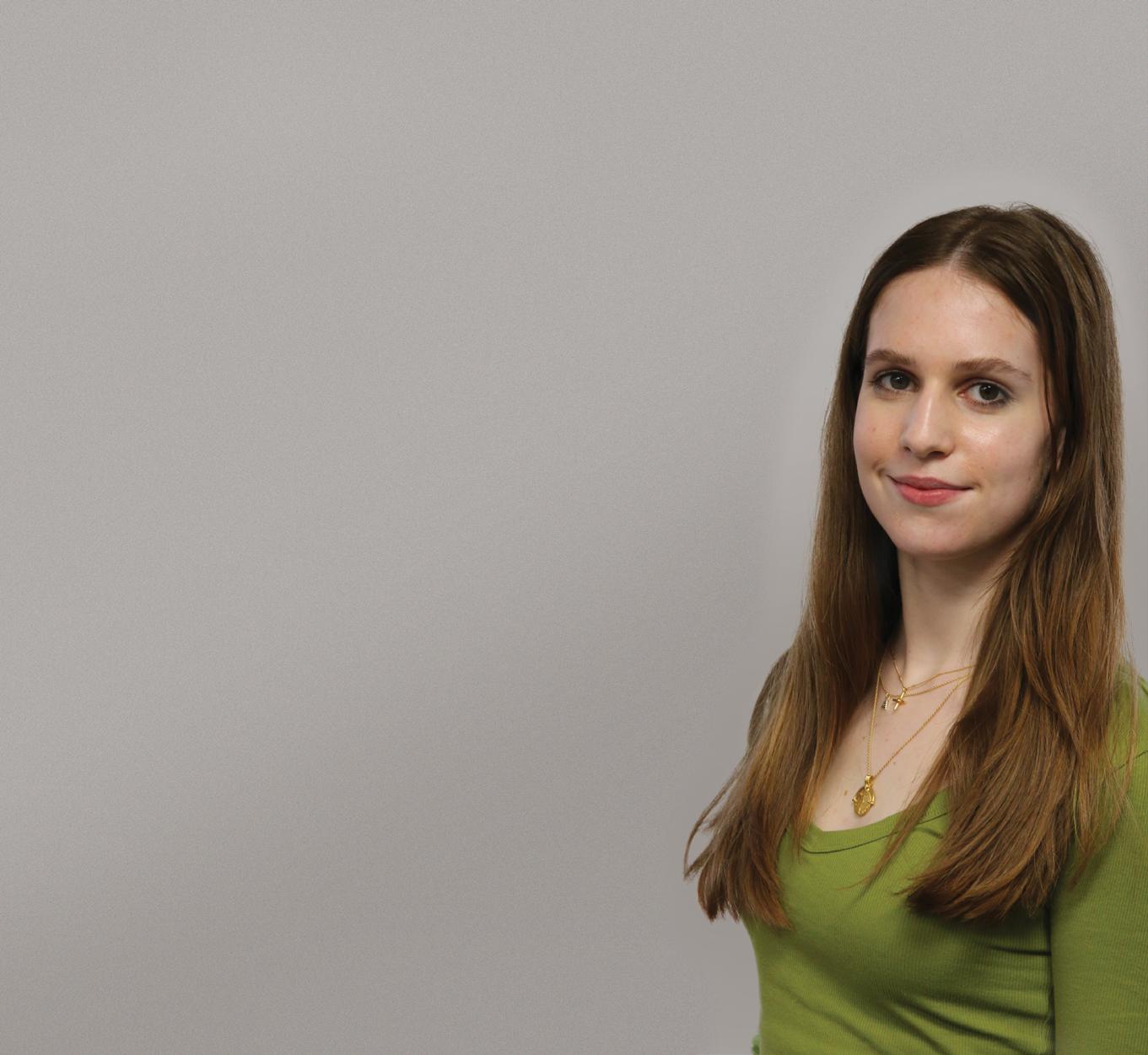
AVA
“Supporting other women is so important and this message is clearly translated through the ethos at LEH. It is amazing being in an environment with so many other strong women who all champion each other in light of our differences and uniqueness. Whilst a woman alone has power, collectively we have impact. Traditionally we have been taught to be competitive with one another, because there was such a scarcity of women at the top. It’s so clear that strategy doesn’t work. The truth is that raising each other up and channelling the power of collaboration is truly how we implement change—and have a lot more fun along the way. We need to reverse the stereotype that women don’t support other women.
Being surrounded by so many strong women, whether that be teachers or students, I am inspired every day to be the best person I can be. It is such a privilege to have the unlimited support of so many influential women and being able to reciprocate this is just as empowering. The theme of #BreakTheBias perfectly encapsulates the strength and power of women at LEH and I am so thankful to be part of such a community.”
Learning Life Lessons on the Playing Field
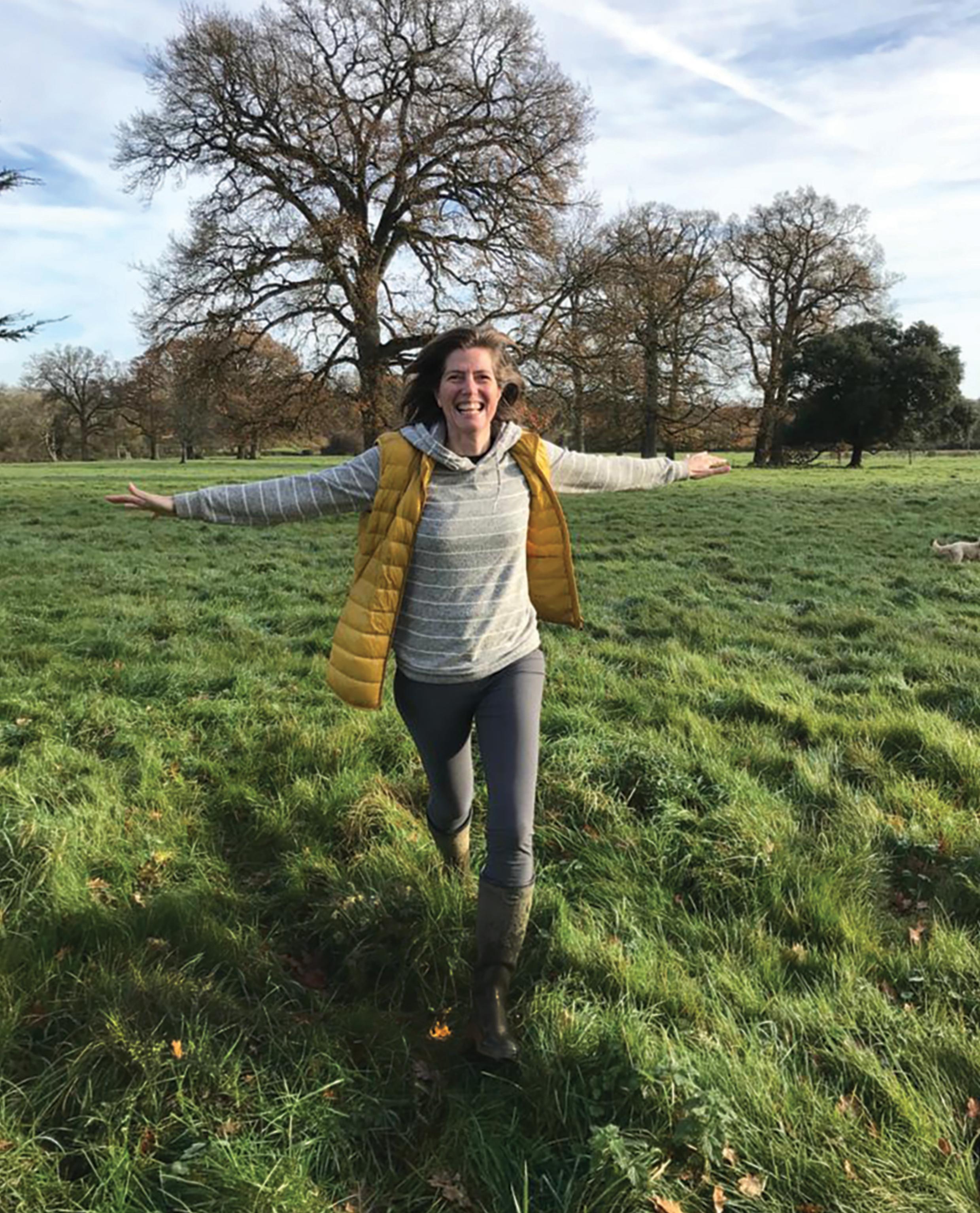
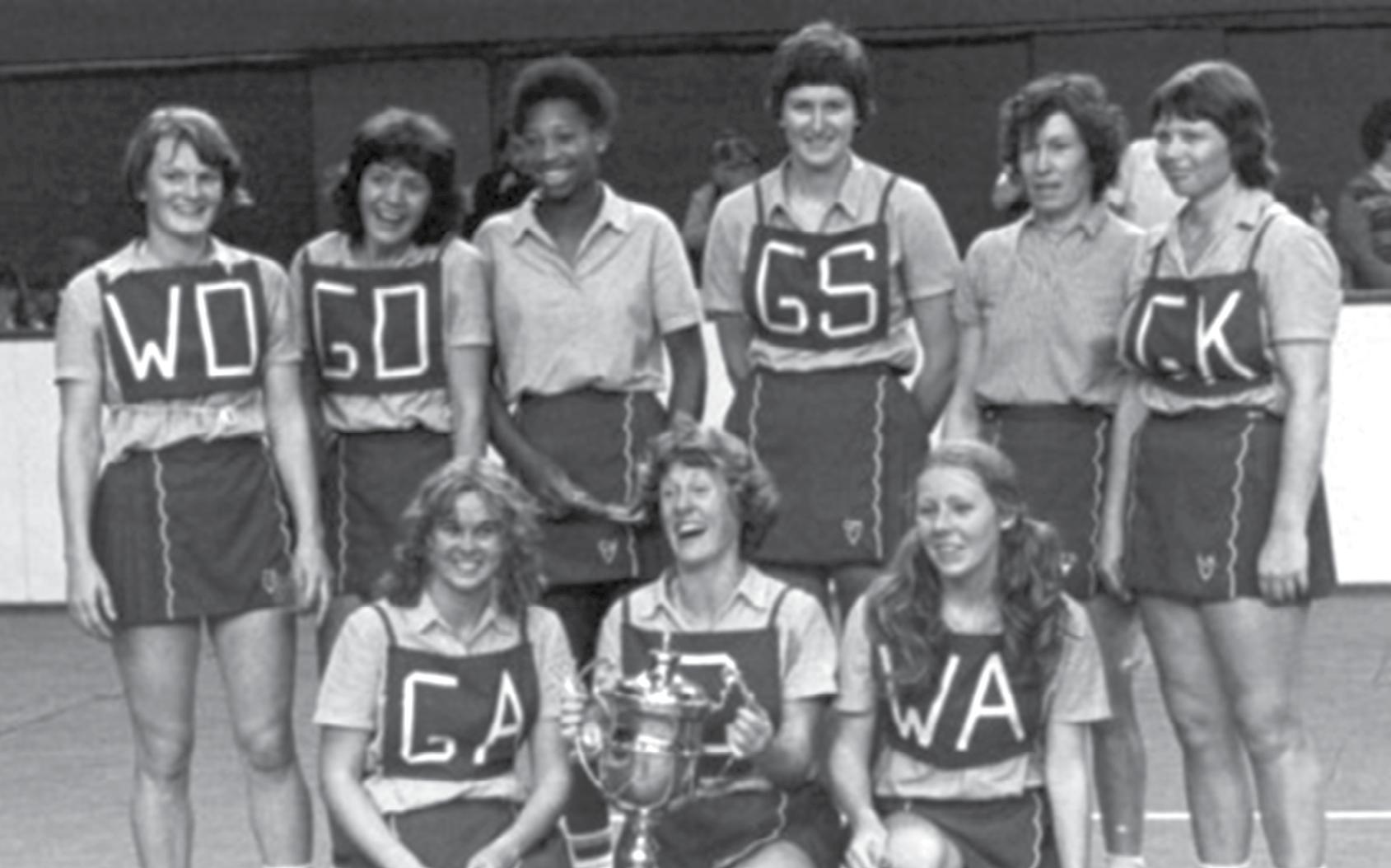
Sudbury wins the Clubs Knockout Tournament at Wembley in 1978 Mary Beardwood as GA
Stephanie Hilborne, Class of 1986, was the Chief Executive of The Wildlife Trusts for 15 years, before becoming the CEO of Women in Sport in 2019. Her proudest achievements at school include winning colours in netball, lacrosse and badminton and being made School Games Captain. But the real benefits of playing team sports at school only became apparent later in life.
I lived for sport during my time at LEH. I frustrated endless French and Physics teachers by staring out of the windows during class. I would look longingly at the netball courts and lacrosse pitches, waiting for break to start so I could start living again.
It’s hardly surprising. I loved the fun and excitement of playing team sport. Almost all academic learning was at the time an individual experience – the only sense of collective we could get in most lessons was by being naughty at the back of the class. Not to say I’m proud of that, but a teacher had to be outstanding to command the attention of the restless amongst us. Some were, notably Miss Thomas, our history teacher, who helped us understand the truth of the British Empire like no other could.
From 1978 to 1986 I was taught netball by the best – Mary Beardwood – an England netball great [see the photo - this is how I remember her] and we learnt lacrosse from Sue Wilson who was leading England at the time. At least I thought I was being taught netball and lacrosse.
It was only later in my life that I realised I had been learning more than how to take a baseline throw near the post in netball or command a defence in lacrosse. In fact, I had been learning core life skills that subsequently helped me enormously in my career.
When I was young, girls could not dream of a career in team sport. There was zero press coverage at the time and very little investment, let alone salaries or serious prize money. When I was born women were still formally banned from playing football at FA club pitches, a ban that had started in 1921 and lasted to 1971. Even now only 30% of girls and young women dream of reaching the top of sport compared to 60% of boys and young men.
But it was this lack of sporting opportunity, combined with a back injury at the age of 17, that meant I could pursue my academic studies and focus on my passion for environmental protection. I loved nature from an early age and after a degree in Biology and MSc in Conservation I worked in the charity sector, campaigning for wildlife for 27 years.
This was no easy place to be, and especially for a woman. Men were making all the decisions – in Parliament, in business, in Local Authorities and many didn’t much like
a mirror being held up to them by a young woman. I suffered my fair share of aggressive dismissal. To deal with this and to lead change in charities and ultimately in a movement of 46 sizeable charities, required resilience. Whilst I could draw resilience from a loving upbringing, whenever the going got really tough I would picture Miss Beardwood at the side of the court in a squat position, her fists clenched, screeching “Go on!”.
This may sound strange, but the culmination of my school netball career was playing GK for the U18 team and our reaching the final of the netball schools national finals in freezing cold winds on the Isle of Sheppey.
I was 5’10”, our GD was 5’7”. My GS opponent was about 6’3”. The only possible way we could hinder their attack was by excellent communication and keeping going, not letting the balls flying over our heads and into the goal weaken our resolve or sap our energy. It would just take one forced error on their part, and we could intercept, and that only needed to happen once or twice and we could win.
We didn’t win in the end, despite being just ahead for much of the match, and it was gutting. But it wasn’t because we didn’t turn back the odd ball out of defence, it was because to capitalise on these rare events meant unbearable pressure on our own attack who needed to put every single shot in the net for us to win.
So, what did this and my team sport teach me about life? I learnt that even if the odds are stacked massively against you, even if you keep seeming to fail, you cannot afford to give up. Just one look to the side lines at Miss Beardwood made us realise this. We were a tight team in joint endeavour, none of us could have any impact on our own, so we had to communicate.
I had been drilled to shout commands at the other players and to respond to theirs. Shouting went against all my instincts but my “Left!”s and “Right!”s meant our brilliant GD could be her best. Every throw you took, every move you made was not for you, but for the team and you learnt to take risks for the team and to watch others take risks that affected you. If you dropped a pass or missed a chance, you learnt how to channel that into positive energy and make up for it. If others lost their nerve, you forgave them because they were taking risks on behalf of the team, and you needed to accept other people’s mistakes as well as learning from your own. Think about it. What are the skills frequently cited in business circles being weaker in women than men? Leadership, drive, confidence, willingness to take risks. Well, I know that I have had a lot more of all those things as a result of my sporting life at LEH, and every girl deserves that chance. But even now, 23% fewer women and girls play team sports than men and boys.
It was my understanding of what I had learnt, and of the ongoing gender inequalities in access to team sport and visibility of women’s team sport, that led to my taking my current role as CEO of Women in Sport. And when I started the process of applying for the role, I was amazed to discover that our charity had been founded in 1984 (the year I took my O levels) by an LEH alumna and England’s most-capped Lacrosse player, an amazing champion of equality and child protection in sport – the late Celia Brackenridge OBE.
And finally, but critically, I learnt leadership – I watched it in others, and I learnt it. This makes me all the more fired up to address the ongoing gender inequalities in life and sport.
